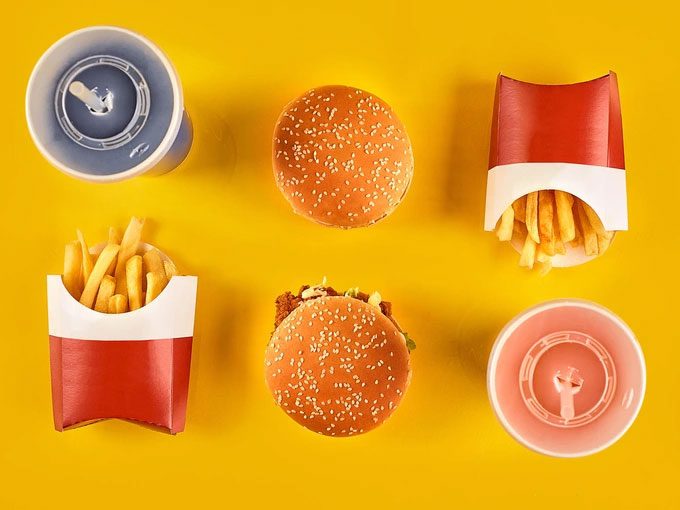Ultra-processed foods such as beverages and ready-to-eat meals may exacerbate cognitive decline and increase the risk of memory loss.
Ultra-Processed Foods: Hidden Dangers

Foods high in fat and sugar can cause adverse changes to the brain.
For many years, scientists have recognized that an unhealthy diet—particularly one high in fats and sugars—can lead to adverse changes in the brain.
A recent study further indicates that poor diet is a factor contributing to memory decline during normal aging. Moreover, it also increases the risk of developing Alzheimer’s disease.
When discussing a “poor” diet, the study seems to emphasize certain dietary patterns that include ultra-processed foods, such as snacks, beverages, and ready meals containing additives, artificial colors, preservatives, high levels of sugar, salt, and fats but very few nutrients.
These have long been considered a group of foods that often lead to diseases including heart disease, diabetes, obesity, some cancers, and reduced lifespan. According to statistics, these foods account for up to 60% of many people’s diets.
Upon closer evaluation of certain dietary patterns, the new findings confirm that they may exacerbate age-related cognitive decline and increase the risk of dementia.
To achieve these results, researchers compared the rate of cognitive decline over about eight years among groups of people consuming varying amounts of ultra-processed foods, involving over 10,000 participants living in Brazil.

Ultra-processed foods can pose more health risks than we might predict. (Photo: Getty).
A second study involving approximately 72,000 participants in the UK assessed the correlation between consuming processed foods and dementia.
Specifically, in the group that consumed the highest amounts of ultra-processed foods, about 1 in 120 individuals was diagnosed with dementia over a period of 10 years. For those who consumed little or no ultra-processed foods, the figure was 1 in 170.
Another way in which diet and ultra-processed foods may impact brain health is through the gut-brain axis.
This is a fundamental communication pathway in the human body, occurring between the brain and the gut microbiota or the microorganisms living in the digestive tract. They have a direct impact on hormones and neurotransmitters that are crucial for brain function.
Thus, understanding and addressing the specific effects of each type of food on the human body is extremely important.
Low Nutritional Value, High Harmful Components

Ultra-processed foods tend to have lower nutritional value and fiber.
Over time, it becomes evident that ultra-processed foods tend to have lower nutritional value and fiber. Examples include soda, packaged cookies, potato chips, frozen meals, flavored nuts, flavored yogurt, distilled alcoholic beverages, and fast food…
Even packaged bread, which is typically made from nutritious whole grains, is often considered ultra-processed in many cases due to the presence of additives and preservatives.
Conversely, they often contain higher levels of sugar, fats, and salt compared to unprocessed or minimally processed foods. These processing methods alter the natural state of the food, leading to increased risks of obesity, diabetes, heart disease, and vascular diseases including strokes.
It is also important to distinguish ultra-processed foods from processed foods. Processed foods still retain most natural characteristics, even after undergoing some form of processing, such as canned vegetables, dried noodles, or frozen fruits.
However, another concerning point is that many processed foods today also share characteristics similar to ultra-processed foods. They contain additives, preservatives, or coloring agents.
Therefore, research does not clearly indicate whether a higher intake of processed foods has any negative effects on health similar to those of ultra-processed foods.


















































